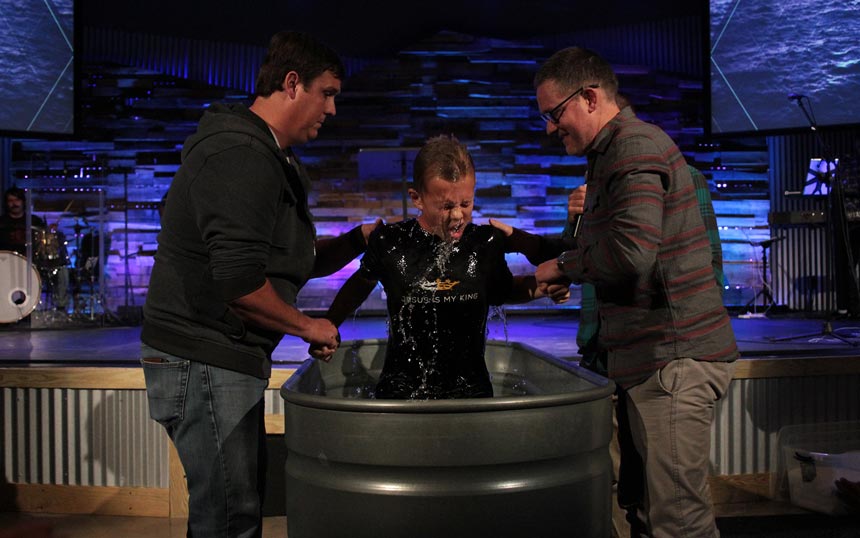Theological Distinctives
The Continued Presence and Power of the Holy Spirit
This is commonly called charismatic theology or continuationism (meaning the gifts of the Spirit continue today) in contrast with cessationism (the belief that the supernatural gifts of the Holy Spirit have ceased for today). Charismatic is a term that comes with a lot of baggage, and much damage has been done by charismatics with an over-emphasis on spiritual gifts and experiences at the expense of other doctrinal truth. Experiences are important and we want to live in the reality of the Spirit, but experiences do not define our relationship with Jesus, the truth of the Gospel does.
The Bible teaches that the Spirit indwells, sanctifies, and empowers all who are brought to faith in Christ so that they might live in obedience to Jesus. It is only through the Spirit’s presence and power that the church can effectively continue Jesus’ mission. The Holy Spirit gives believers spiritual gifts for the work of ministry and the building up of church. These gifts include natural abilities such as teaching and generosity, as well as supernatural gifts such as healings and prophecy. The gifts of the Spirit did not pass away with the death of the writers of scripture, and are actually central to effective ministry in the church and are to be eagerly desired, faithfully developed, and exercised according to biblical guidelines.
God’s Sovereignty in Salvation
This is known as election or the reformed doctrine of salvation. As with the gifts of the Spirit, this doctrine carries baggage, but we must teach what we believe the Bible clearly says. Before we loved Christ, we were dead in our sins, unable to save ourselves or choose to worship God. Despite our dire situation, God the Father loved us and sovereignly chose us in Christ for salvation, not on the basis of our good works. By His purpose and will, the Holy Spirit draws us to salvation. The atoning work of Jesus on the cross is sufficient to save us and keep us eternally secure in His salvation. The bottom line is that from beginning to end, salvation is of the Lord. This does not keep us from proclaiming the Gospel or going on mission. In fact, the power of God to save is our fuel for mission.
Believer’s Baptism
We believe that baptism is the sign of a believer’s entrance into Christ’s kingdom, only to be administered once. To be united with Christ, one must be born again, and thus baptism is associated with repentance and spiritual re-birth. (Therefore, we do not baptize babies.) Furthermore, we believe that immersion in water corresponds to the two-act drama of salvation: in going underwater, we are “buried therefore with him by baptism into death,” but in rising from the water, we are “raised to walk in newness of life” (Rom. 6:4).
The Lord’s Supper
We believe Jesus instituted the Lord’s Supper for three reasons: for the remembrance of his death and sacrifice; for the spiritual nourishment and growth of believers in him; and as a bond and pledge of communion with him and with each other. Those who take the Lord’s Supper properly, in faith, do actually receive Christ crucified and all the benefits of his death. The body and blood of Christ are not bound up in the elements but are spiritually present to the believers in the sacrament by the power of the Holy Spirit. When taking the Lord’s Supper, we are to remember the death of Christ, discern the body of Christ in the community of the Church, and look forward to the return of Christ.
Redeemed Sexuality
The prevailing sexual ethic of our culture is that sex is an appetite to be explored and cultivated however a person sees fit, as long as the partners are consenting. It is thought that a person is somehow incomplete unless they are able to express their sexuality any way they choose.
The culture is loud on this issue, and unfortunately the American church has been silent. This silence has brought further confusion into the church on the issue of sex. The Bible is actually totally clear. God cares about sex because He cares about our relationships and our flourishing. Actually, God has a much higher view of sex than our culture. In the Bible, sex is the highest level of human intimacy. Sex is therefore reserved to be enjoyed only in a covenant marriage relationship between one man and one woman.
In our society this seems overly restrictive, but that is only because sex has been elevated from a good gift of God to an idol that defines our identities. When we make a good thing like sex into an ultimate thing, it becomes our slave-master. Christians believe that there is much more to a person than their sexuality, and that the boundaries God has placed around sex are for our good and ultimate joy. We also believe that singleness is a valid and positive option for Christians, (like Jesus and the apostle Paul!) and that it is possible to have a fulfilling Christian life as a single, celibate person.
Redeemed Gender Roles
Men and women were created equally in God’s image, and are spiritually equal as heirs in Christ, with equal access to God. Both men and women should be encouraged and equipped to use their spiritual gifts in service to the body of Christ, as both men and women are given gifts to strengthen the church.
Although they are equal in spiritual value, men and woman have different roles and responsibilities in the church and home. God has given to the man the primary responsibility to lead the family in accordance with the servant-leadership and sacrificial love characterized by Jesus Christ. In the same way, the office of elder is distinctly for men as the primary leadership role in the church.
Even within the Trinity, the persons of God have different roles, and the Son is under the leadership of the Father: “But I want you to understand that the head of every man is Christ, the head of a wife is her husband, and the head of Christ is God.” – 1 Corinthians 11:3
The Father’s headship over Jesus does not mean that Jesus is inferior in anyway to the Father. Jesus has a glorious purpose within the Trinity, but even He experiences leadership. Male leadership is not about chauvinism, but about living in the fullness of who God has made us to be.
Women should be equipped for ministry alongside men in roles such as deacon, community group leader, or the captain of specific ministries. Their leadership should be felt in the church and their voices should be heard to inform decision-making.







